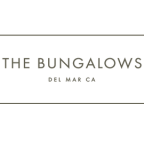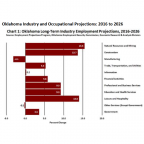Facing Tough Interview Questions
Most applicants for a new job or promotion are more concerned about the in-person interview than their skills and qualifications for the job itself. If you don't have a 4-year college degree, and the interviewer is aware of it, it's clearly not a deal breaker for this position if you have made it to the person-to-person interview stage. Nevertheless, if most of the employees at the company have college degrees, you may want to describe your plans to finish your degree part-time (if you have such plans). There is more information about degree programs on our page about Best Bachelor's Degrees.
In fact, having a list of possible interview questions and answers is probably not as useful as really good preparation for the interview in general. In the following article, journalist Kim Remesch describes some things the job hunter should focus on before his (her) face-to-face interview.
Job Hunting: Prepare for the In-Person Job Interviewby Kim Remesch Your resume got your foot in the door for that great job you’ve been trying to land. Now it’s time to prepare for the in-person job interview. Here are six tips to think about before you have a face-to-face meeting with a potential employer: Employer Wants and NeedsKeep one thought in mind: the interviewer wants to determine if you are the right person for the job. Can you do the job based on what s/he reads, hears and sees? Your resume may show a lot of administrative potential, but if you are applying to a dental office, and you’ve obviously paid little attention to your own dental care, that’s a problem. What plays well on paper, may not be as stellar in person. As you prepare for the job interview, keep a copy of the job requirements in front of you. While you develop a potential list of questions, that list of job requirements will help you develop answers that will be relevant to the company and to the specific job. Research the CompanyYou should have researched the employer while creating your cover letter. Dig deeper as you will want to incorporate things about the company, match their wants and needs to your experience, when answering interview questions. One of the things you will be judged on is whether you’ve bothered to get to know what the employer wants. You will be asked many questions that revolve around the company’s wants and needs. Forego the research, and the interviewer will know his company doesn’t matter enough for you to take the few minutes to get to know the business. For example, you learn that the company sponsors a community group or volunteers for certain charities. When asked what you do in your off time, relate to that community involvement and volunteer work you do. If you’ve been touched by that charity or cause, speak to that. First ImpressionsAccording to research among hiring managers, the main impression on whether or not to hire you will be done in 10 minutes. Your resume and cover letter may seem like the first impression, but Americans are visual, so employers will remember a face more than the name on a typed piece of paper. You want to stand out but not in an obtrusive way. How you dress will depend on the type of job you are seeking but in general a neat suit with a shirt that’s not too flashy will do. You’ll be judged by your appearance, but you want to leave a clean, put together impression, as opposed to one that makes you stick out in an odd way. Your shirt, for example, should be freshly ironed with none of those right-out-of-the-bag folds. Avoid flashy jewelry. A simple watch, necklace, against a new haircut will leave a good impression. This is not the time to try out a new hairstyle. That said, if you are applying for a creative job -- a job at a trendy boutique, your research will tell you how to dress to fit in. Generally, however, even if you will be going into work clad in jeans, as are the bulk of the employees, for that interview, think neat, clean and put together. Show the interviewer you care. Wrap it UpThe interviewer will ask if you have any questions. If you launch into a laundry list of questions regarding nut-and-bolts operations of the job, you’re missing the point. The interview wants you to ask questions, but he’s also checking to see how well you’ve researched the company. In keeping with community activism theme above, you can ask about specifics on the community events and how employees play a role. If a company has been rated number one in a category, ask what is being done to keep that title, and how employees can make that happen. Let the interviewer know that you are interested in the company as a whole, and that you are interested in the goals of the company. It’s Not Over YetAfter you’ve walked out the door, you may think that’s the end of the story, so now you should just sit back and wait. Show your manners. If you’ve been searching for a job for any length of time, you know how hard it is to get your foot in the door. The in-person interview has brought you one step further to the job you want -- and need. Show the interview another side of you by following up on the visit. Do not bombard the company with phone calls asking if a decision has been made. Instead, as soon as you get home, jot off a hand-written thank you note and send it along. If there was a point you felt you stumbled on in the interview, or a question you couldn’t answer, you may want to mention it in the follow up. It would show that you are interested enough to replay the interview in your head, and that you care enough to follow up with an answer, even when you don’t have to. The Next StepIf you receive a call or email saying you did not get the job, it doesn’t stop there. Follow that up, too. Thank the person for his time, and let him know that you are interested in working for that company (if you are), and you hope there will come an opportunity that he finds suited to your qualifications. You’ll leave the person with a good impression of your enthusiasm and follow through on projects. |
Do You Have a Question?
If you have recently been a participant in a face-to-face interview and have a question (or answer) that most people [probably] haven't heard, please place a comment below. Other readers will certainly appreciate it.









